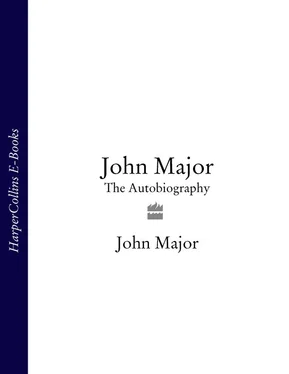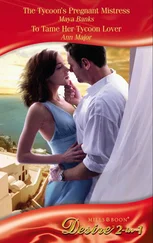In February 1970 I became Chairman of Housing, and the following month Chairman of Brixton Conservative Association as we began to prepare for the GLC elections on 9 April, and the expected general election. I had been asked whether I wished to contest the GLC elections for Hammersmith and Lambeth, but decided I had my hands full.
The GLC elections were held that year on a borough-wide basis, with four candidates being elected from Lambeth. One of the Conservative candidates was Diana Geddes, who on polling day was working out of our Brixton Road headquarters. Peter Golds brought a friend with him to help bring in the votes. I saw them as they arrived. She was slender, a little above average height, with mid-brown hair, shining brown eyes and a beautiful, curving, glamorous smile. Dressed in a beige checked suit, fawn blouse and white, knee-length boots, she was stunningly attractive.
‘Hi,’ said Peter. ‘This is Norma. She’s come to help.’
She was Norma Johnson, ‘mad on opera’, said Peter, adding that she’d been known to sleep outside Covent Garden all night to get tickets for Joan Sutherland. Within minutes I discovered she was a teacher with her own Mini, her own flat – temporarily living at home because she’d rented it out – not very political, but Conservative, and that she also designed and made clothes.
The demands of election day drove us apart. Norma and Peter went out in her Mini to collect and deliver voters to the polling station. I canvassed, cajoled workers, kept in touch with candidates, filled in wherever necessary and arranged for Norma to attend the count at Lambeth Town Hall. Although the Conservatives won control of the GLC that night, we did not win the seats in Lambeth. But I had found Norma.
A few days later she phoned. She was having a party – would I like to come? Parties weren’t much my scene then, and I wanted Norma alone, not in a crowd. I declined, pleading another engagement. She phoned again several days later. She ‘happened to have a spare ticket for a gala at Covent Garden’. Was I interested? I was.
The gala was a tribute to Sir David Webster, the retiring administrator at Covent Garden. It was a long programme and it overran. The opera house was hot and oppressive, and the music too somnolent for someone who had been reading council papers until 2 a.m. and writing banking essays from six in the morning. As Joan Sutherland closed the gala singing the mad scene from Lucia di Lammermoor , I fell asleep.
I knew from the moment we met that I wanted to marry Norma. Ten days later we were engaged. Norma was an only child. Her mother, Dee, had been widowed as a twenty-two-year-old in 1945 when her husband Norman – who served in the Royal Artillery throughout the war – had died in a motorcycle accident days after it ended. Four months earlier Dee had lost her baby son, Colin, at only six days old, and with Norman’s death she and three-year-old Norma were on their own. When life treated Dee harshly she fought back. For much of her life she held down two or three jobs at the same time to ensure that she and Norma lacked nothing. Norma went to boarding school from the age of four, and had grown up very independent and practical.
My mother was back in hospital with yet another bronchial and chest infection, and I took Norma to see her. For once there was no caution, no holding back, no reservations. She was as certain as I was that this was the right girl.
Meanwhile, in Brixton, a mini-crisis was brewing. The Conservative candidate for the general election was James Harkess, personally charming but strongly right-wing, with Powellite views on race that he expressed vigorously and openly. He and I were never going to agree. He saw the problems of immigration. I saw people trying to better their lifestyle. Nor did it seem to me that implying that half of his electorate were unwelcome in the constituency was a vote-winning platform.
At the AGM of the association Harkess made a wild speech that was strongly anti-immigrant. I was appalled at his intolerance, and embarrassed too, especially as we had a new West Indian member present, who must have been mortified. I replied angrily from the chair, rebutting Harkess’s remarks, and the atmosphere turned sulphurous. I knew that relations between us were soured beyond repair. The ramifications were considerable. Jean Lucas, the group agent for Lambeth, strongly backed me, as did Lady Colman, President of the association, and widow of the former Conservative Member for the seat who had been defeated in 1945. Others in the association felt the same.
Gradually it became apparent that the consensus was that James Harkess’s views would damage race relations in Brixton, and with them the Conservative cause. I took soundings, and spoke to Harkess about our concerns, but did not receive any positive response. Finally I went ahead with a motion for the executive to consider selecting a new candidate. It would certainly have been approved, and I had Diana Geddes in mind as his replacement. Then Harold Wilson called the general election, and the meeting to discuss whether the candidate should be replaced instead endorsed him, dutifully and without enthusiasm.
It was an odd election campaign, in blazing weather. Opinion polls gave Labour a huge lead, but they proved inaccurate. When the votes were counted the swing to the Conservatives across the country was apparent from the first result. By the end of the night, to everyone’s surprise but his own, Ted Heath was prime minister with a comfortable majority.
There was never any doubt that Colonel Marcus Lipton, the Labour candidate, who was an excellent constituency MP, would be comfortably re-elected in Brixton. In nearby marginal Clapham, Bill Shelton, the Conservative candidate, comfortably took the seat vacated by its Labour MP, Mrs Margaret MacKay, from the recently adopted Dr David Pitt, a black Labour candidate, but without raising the race issue. The swing in Clapham showed what a potent force that issue was, and how inflammatory it could have been in Brixton. We had been fortunate. Labour’s huge opinion poll lead and Marcus Lipton’s long incumbency as the Member meant that James Harkess was considered to have no chance of winning. Passions were stilled by the certainty of his defeat, and he soon moved on from Brixton. Clive Jones lost in neighbouring Vauxhall. On Lambeth Council, the Conservatives were aware that we were probably only short-term tenants at the local level, and that Labour was likely to regain control at the next council elections in 1971. Too many of our majorities were tiny for us not to realise that even a small swing of the political compass would have a serious impact.
We thought our best chance was to mount a real attack on poor housing conditions, and set to it with a will. Bernard Perkins as leader and Peter Cary as Chairman of Finance gave me their full backing as we set about the task. We continued our building and slum-clearance programme. We drew up schemes to sell council houses and to build houses for sale in an attempt to revive owner-occupation and encourage skills and employment in Lambeth. We established registration schemes to tackle overcrowding. We set up arrangements with Peterborough New Town for families to move there into jobs and good housing (I little knew that eight years later many of them would become my constituents in Huntingdon). We encouraged ministerial visits so that we could show the new government our problems as we sought more help and finance.
I remember showing Peter Walker, the new Environment Secretary, the squalor of life in the Geneva Drive – Somerleyton Road area of Brixton, where there was mass overcrowding in dilapidated homes with poor facilities. We met one West Indian on the third-floor landing of one of these monstrosities.
‘Where do you live?’ I asked him for the Minister’s benefit.
Читать дальше












